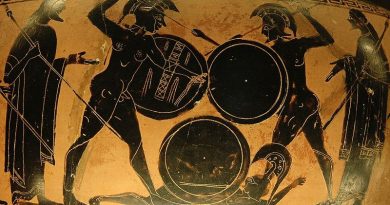Trojan Horse
Trojan Horse is a tale from the Trojan War about the subterfuge that the Greeks used to enter the independent city of Troy and win the war. In the canonical version, after a fruitless 10-year siege, the Greeks constructed a huge wooden horse, and hid a select force of men inside. The Greeks pretended to sail away, and the Trojans pulled the horse into their city as a victory trophy. That night the Greek force crept out of the horse and opened the gates for the rest of the Greek army, which had sailed back under cover of night. The Greeks entered and destroyed the city of Troy, ending the war.
Metaphorically a “Trojan Horse” has come to mean any trick or stratagem that causes a target to invite a foe into a securely protected bastion or place. A malicious computer program which tricks users into willingly running it is also called a “Trojan horse” or simply a “Trojan”.
The main ancient source for the story is the Aeneid of Virgil, a Latin epic poem from the time of Augustus. The event is also referred to in Homer’s Odyssey.[1] In the Greek tradition, the horse is called the “Wooden Horse” (Δούρειος Ἵππος, Doúreios Híppos, in the Homeric Ionic dialect).




